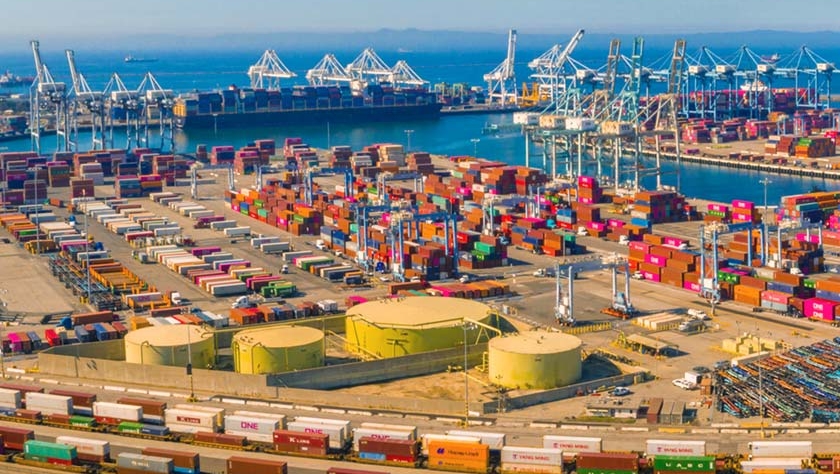|
Report Raises Concern of Power Shortage for Green Ports, PMSA Warns about Fallout to the Supply ChainJune 28, 2021 - The following article was published by the Pacific Merchant Shipping Association (PMSA) on June 9: State policies requiring California’s port supply chain to transition to zero-emission technologies by 2035 need to address challenges relating to providing an adequate energy grid supply coupled with resiliency to avoid significant impacts on the ability of California’s supply chain to move cargo, according to a newly released report. The report from engineering consultants Moffat and Nichol examines the energy grid requirements for vessels and the landside equipment that move cargo between the vessel and inland destinations. The report can be accessed here. The report examines the state’s goal of reaching zero-emission power generation and the enormous demand power demand growth necessary to achieve that goal. With the grid already stretched to its limits, the report indicates that power demand will dramatically grow at the ports. There is considerable risk that the transition to all-electric power creates could outstrip the ability to reliably deliver power to California’s ports without careful planning. Failure to meet rapid power demand growth over the next decade in a reliable manner will impede the ports’ ability to move cargo resulting in nationwide economic consequences. “This report confirms our belief that the zero-emission goal of 2035 will require complex planning, substantial funding and a level of cooperation and coordination by a myriad of state and local agencies for a massive public works project that has never been undertaken in California,” said John McLaurin, President of the Pacific Merchant Shipping Association (PMSA). The findings identify challenges for the state’s energy plan, including:
Cargo moves in and out of the ports on a seasonal basis, and during the peak season, prior to the holidays, operations at the ports ramp up considerably. According to Moffat and Nichol, seasonable demand requires a power system that has sufficient electric power in the evening when solar is not available, power requirements that are equivalent to powering 390,000 households, or utilizing 50% of the output of one of the reactors from the Diablo Canyon Nuclear Power Generating Station that is scheduled to be shut down by 2025 as demand ramps up. “As federal and state elected officials consider infrastructure improvements, California public officials need to review state energy and environmental policies to ensure that California jobs and businesses are not put at risk,” concluded McLaurin. About the Pacific Merchant Shipping Association (PMSA)The Pacific Merchant Shipping Association (PMSA) is an independent, not-for-profit association focused on global trade. PMSA operates offices in Oakland, Long Beach and Seattle, and represents owners and operators of marine terminals and U.S. and foreign vessels operating throughout the world. SOURCE: PMSA |

